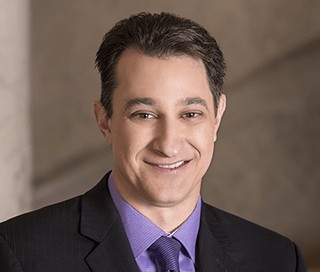


Two of the major Republican candidates for governor say they’re opposed to Gov. Butch Otter’s plan to add thousands of people onto government healthcare programs. But the third candidate, Lt. Gov. Brad Little, isn’t saying what his position is on the issue.
Otter seeks lawmaker support for a federal waiver that would allow 35,000 Idahoans to get Obamacare insurance subsidies and put another 2,000 or so onto Medicaid. U.S. Rep. Raul Labrador and Boise businessman Tommy Ahlquist say they’re opposed to Otter's proposal.
Little has not responded to multiple Idaho Freedom Foundation requests to state a position, for or against the proposal, and its attempt to make more people dependent on government for their healthcare.
All three candidates were asked to provide their ideas for healthcare in Idaho should they be elected this year. Little continues to tout the executive order he and Otter co-signed to allow Obamacare-less insurance plans to be sold in the state. Little remarked, “We must decrease regulatory burdens, and thereby increase choice and competition.”
Little said he wants to create incentives for health savings accounts, healthcare transparency, and expanded medical residencies. In his 2019 budget, Otter has proposed additional state funding for medical residencies; Little supports that. As for healthcare programs for the needy, Little says, “Our entire safety net must have more spring in it, while not penalizing the working poor. With more affordable health care options and a framework for independence, working people across Idaho will have more health care options for themselves and their families."
Little and Ahlquist both said improvements to the state’s high-risk insurance pool were necessary in order to help people with costly healthcare issues.
Ahlquist, a former emergency room doctor, blames “professional politicians in Idaho and in D.C. [who] are arguing over how to rearrange the lawn chairs on the titanic when it comes to healthcare.”
He asserts, “The problem with healthcare in the United States starts and ends with government policies and practices over the last several decades that drove health care from a primary care-centric delivery of care to a hospital-centric delivery of care. These federal policies resulted in an all-out assault on free-market principles and transparency — and overloaded every aspect of the healthcare industry with regulation, mandates and artificial fee schedules that drove up pricing.”
Ahlquist said he would reform Medicaid, remove insurance mandates, and address provider shortages by “develop[ing] the infrastructure needed to provide telemedicine opportunities to control cost and invest in programs that keep medical providers in Idaho.”
Labrador said he’d lower prices and improve healthcare in the private medical marketplace with the expansion of “options for Idahoans to utilize direct primary care, healthcare co-ops, holistic medicine and faith-based or other voluntary associations. To further bring down costs in the private insurance market Idaho should pursue waivers that exempt us from requiring some or all of the essential health benefits and end the community rating requirements, something I’ve fought for at the federal level.”
Regarding the poor, Labrador said Medicaid “promotes dependency and discourages personal accountability.” Government should be a healthcare provider of last resort and that the state should “lead on Medicaid reforms with bold proposals that embrace personal responsibility and free-market principles, like requiring small monthly premiums, work requirements for able-bodied individuals, co-pays, and greater personal accountability and transparency. These proposals would do more to bring down the cost of insurance, expand access to quality healthcare, and control costs to taxpayers than the Governor’s current proposal.”


